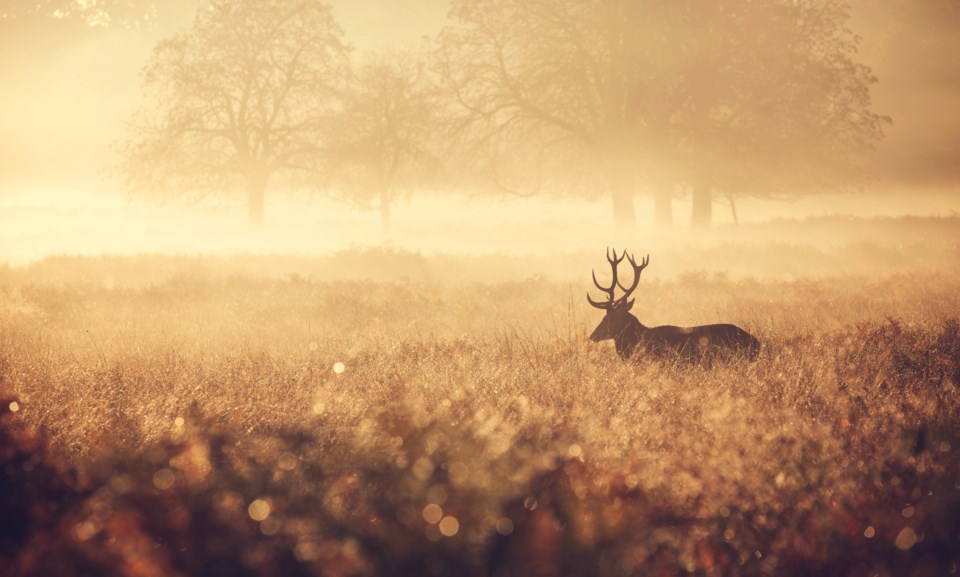The Ontario Ministry of Natural Resources (MNRF) is stressing to the public to keep their dogs under control if they are going to be spending some time outdoors and around wildlife this winter.
Each year MNRF conservation officers investigate incidents of dogs chasing deer and injuring them, which can have devastating consequences.
“Especially this time of year in the wintertime, deer have a difficult time running in snow and on ice,” said MNRF conservation officer Micah Plourde, who works out of North Bay.
“When they’re being chased by dogs, a couple of things can happen. They can be injured and the dogs can also be injured,” he explained in a telephone interview.
Plourde said that quite often what MNRF officers see is that deer end up wounded, or sometimes killed, by oncoming traffic when they run across the road away from a dog.
“Or sometimes they’re killed by the actual dogs that are chasing them,” he explained.
“Often times when they’re chased, it stresses them out to the point of exhaustion and they can actually die from exhaustion. I know in the wintertime a deer’s metabolism slows down and they basically use everything they have just to survive the winter and that can be compromised once they’re being chased by dogs.”
LEGAL RAMIFICATIONS
In Ontario, there are laws that help to protect deer from being chased during non-hunting season.
Under the Fish and Wildlife Conservation Act (FWCA), it is illegal to let a dog be at large in an area inhabited by deer, moose, elk or bear during the closed season.
Under the legislation, conservation officers have the authority to charge dog owners whose dogs are found chasing deer during the closed season. The maximum fine for an individual under the FWCA is $25,000.
“It’s a regulation that is put in place to protect the animals, regardless of Crown land or private land, it still applies to both,” said Plourde.
“It’s important for dog owners to keep their dogs under control. Typically if somebody is taking their dogs out they should be tied up and they shouldn’t be allowed to run free. So if a dog is running free, then it’s deemed to be at large. In those circumstances, if a dog is at large and the dog is chasing wildlife, the owners can be charged under the Fish and Wildlife Conservation Act.”
Plourde added that $25,000 is the maximum fine under the act, which hasn’t been levied too often.
“There’s a set fine for allowing a dog to run at large, which is $150 and then with the surcharge and court costs its $180, so the minimum fine is $150,” he noted.
“I’m not aware of anybody ever being charged $25,000 for an offence under the Fish and Wildlife Conservation Act but that’s the legal allowance for a penalty under the act itself.”
Dogs that aren’t under control can also be hit by cars, exposed to diseases, attacked by other animals or get accidentally captured in legally set traps.
Plourde added that if you witness a dog that is chasing wildlife, he encourages it be reported to the MNRF tips line at 1-877-847-7667.
“That’s our standard tips line. It’s available 24 hours a day, seven days a week,” he said.
“When somebody calls that number, the information is automatically relayed to all the officers that work in that area and if somebody’s working, they’re able to action that tip as quickly as possible.”
